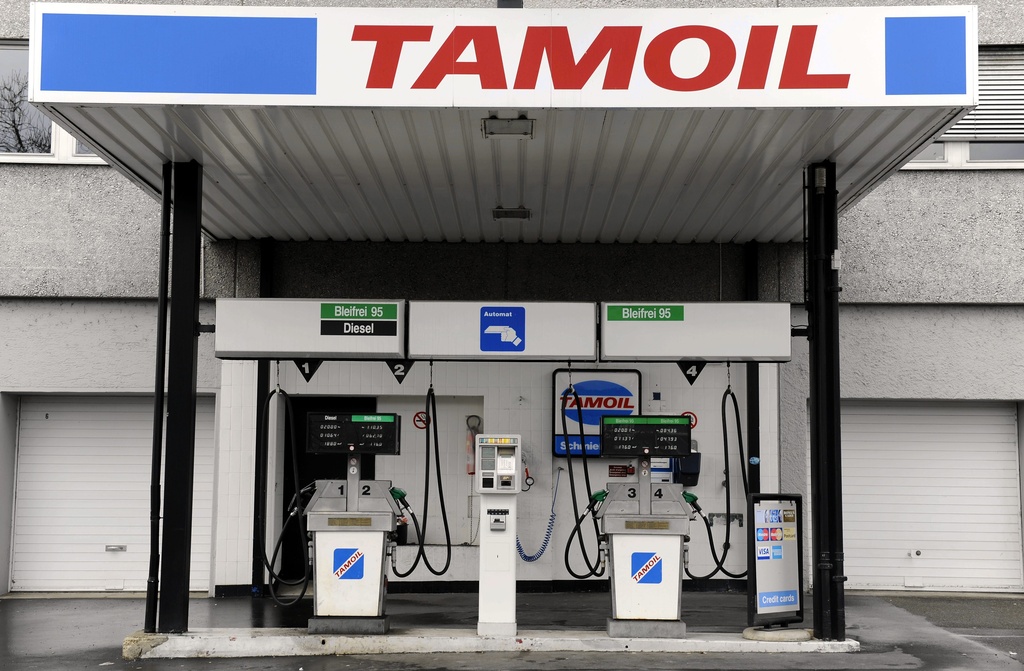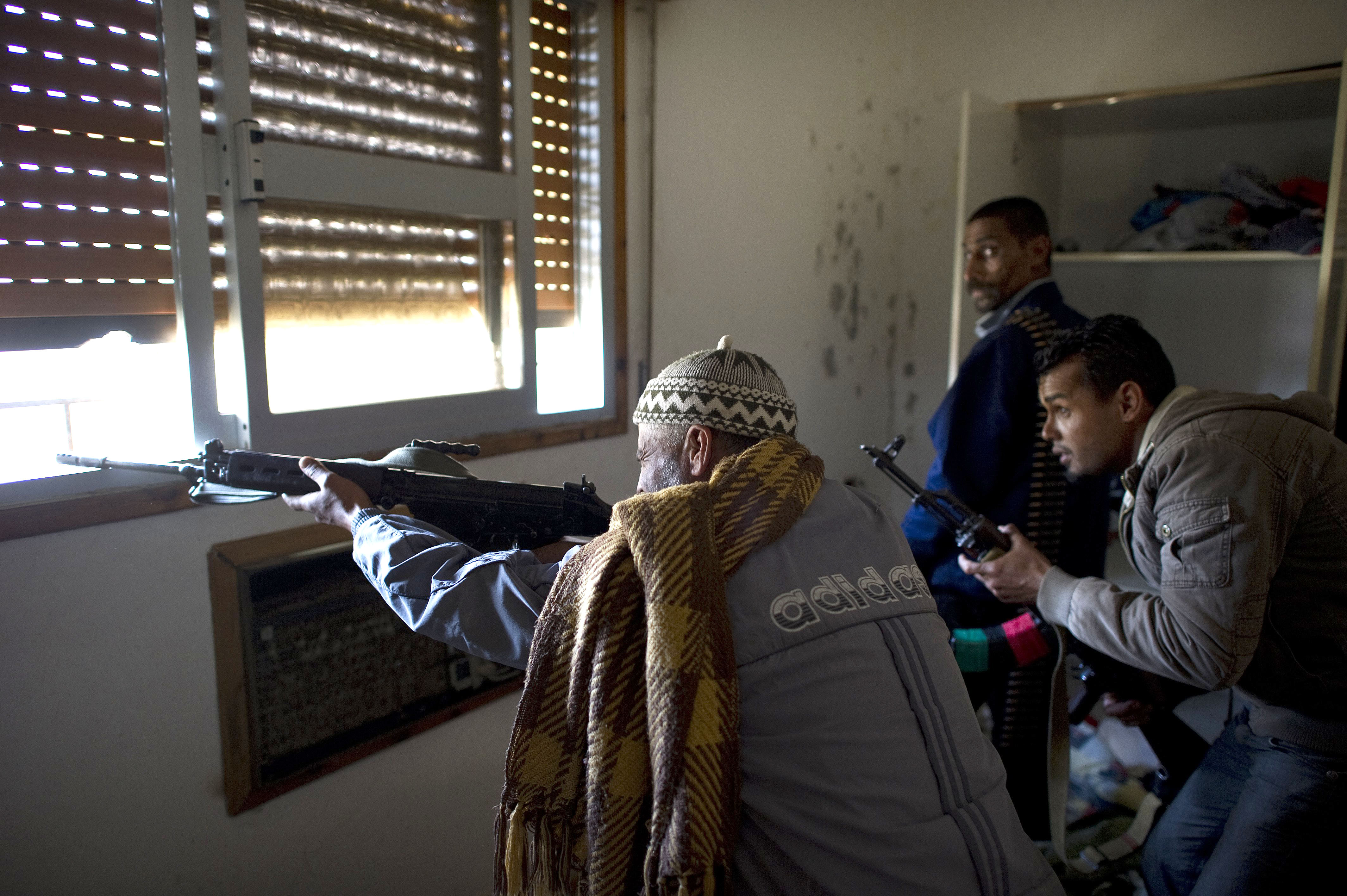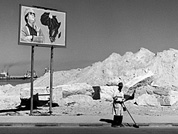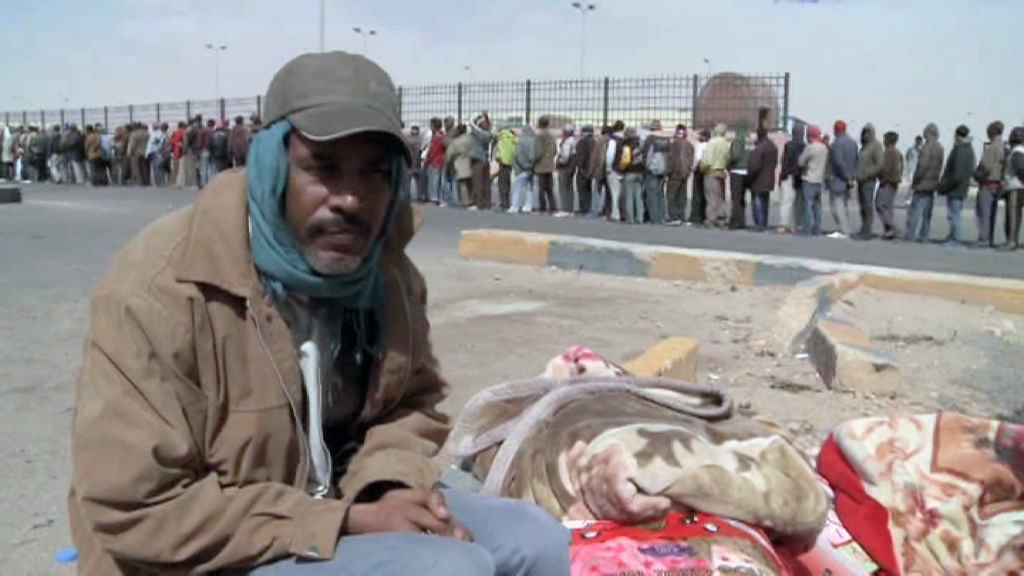Swiss primed to hand over Libyan assets

Switzerland is poised to “quickly” return frozen Libyan assets should the United Nations lift financial sanctions imposed on the country since February.
Swiss authorities are holding onto SFr650 million ($824 million) in assets belonging to Libya. As most of the assets are clearly state-owned – rather than tied to Moammar Gaddafi or his clan – it will be easier for Switzerland to return the assets to the Libyan entities involved.
Officials in Bern have declared their readiness to hand them over to Libya once international legal restrictions ease.
“Once the UN sanctions against Libya are lifted, these funds can be released,” Roland Vock, head of the sanctions unit at the State Secretariat for Economic Affairs (Seco), said on Tuesday.
He said they believed the United Nations Security Council would adapt its financial sanctions “relatively quickly now”.
Seco spokeswoman Marie Avet told swissinfo.ch on Tuesday they were bound by the UN measures.
“When the UN sanctions end it will be quite quick to release the money. It’s not like when you have the funds of [former Zaire leader] Mobutu [Sese Seko], where the grandchildren wanted the money back. It’s not the case here.”
Avet confirmed that state-controlled money would go back to the Swiss bank account holders, which include the Libyan central bank and Libyan National Oil Corporation.
Green light
The foreign ministry also stressed that it wanted the asset saga to move ahead. “In light of the latest developments we hope that the process of restitution can be accelerated,” the ministry told swissinfo.ch, adding it was of “great importance” how the UN Security Council reacts to these developments and whether it decides to unblock certain assets.
The assets are however considerably less than the original billions that were believed to have been stowed in Switzerland by Gaddafi and withdrawn following a diplomatic fall-out between the two countries in 2008.
Other countries are home to much larger assets. Around €40 billion (SFr45 billion) has been frozen around the globe, of which €22 billion is in the United States and €7.2 billion in Germany.
The UN Security Council first announced the arms and financial sanctions in February, as the Arab Spring uprising spread to Libya.
Switzerland blocked “potentially illegal” assets belonging to Gaddafi and his circle. Libya responded by denying that Gaddafi had funds in banks in Switzerland or any other country.
Failing state advantage
Should the Gaddafi regime fall, the rebels by rights will inherit Libya’s main income source, the Sovereign Wealth Fund.
Set up in 2006 to manage the country’s oil revenues and with stakes in European bluechip companies, the fund is seen as key to a post-conflict reconstruction of Libya and any new government will rely on the fund for its future economic development.
It is widely quoted as being worth $70 billion. Cash and deposits make up the largest chunk, at 32.4 per cent of the total assets, while equity holdings make up 11.2 per cent and bonds five per cent.
“Once this regime of Gaddafi falls, the Sovereign Wealth Fund automatically goes over to the new state, whoever is the sovereign then,” Mark Pieth, an asset recovery expert and chairman of the board of the Basel Institute on Governance, told swissinfo.ch.
When it comes to any remaining Swiss-held money or assets claimed by Gaddafi and his clan, Libya is in a better position than its Egyptian and Tunisian neighbours to reclaim them – mainly because Libya can be classed as a “failing state”.
This makes it possible to enforce a new Swiss law on recovering dictators’ assets – drawn up for such volatile situations where countries are in a major state of transition of power.
Tunisia, in contrast, is in better shape and is being required to prove that assets were obtained illegally by the former leader Zine el-Abidine Ben-Ali – not always easy. “It’s a paradox,” admitted Pieth.
Under the law, Gaddafi would have a short time, such as three months to prove the assets were legally his, otherwise they would be forfeited.
“I think it’s an interesting test case for this new law,” added Pieth.
At the beginning of the Libyan uprising, Switzerland blocked “potentially illegal” assets belonging to Gaddafi and his circle. Libya responding by denying that Gaddafi had funds in banks in Switzerland or any other country.
During the diplomatic row between the two countries that broke out in 2008, billions of francs worth of Libyan deposits were removed. In June the government said it had frozen a total of SFr650 million worth of Libyan assets. Many of these belonged to Libyan public companies rather than individuals.
Libya is not the only case of frozen assets in Switzerland this year. At the end of May the assets of Syrian President Bashar al-Assad and nine senior officials were frozen, and travel bans imposed on them.
Switzerland also froze SFr60 million belonging to former Tunisian President Zine el-Abidine Ben Ali and his clan and identified about SFr400 million belonging to former Egyptian President Hosni Mubarak and his close entourage.
The Libyan Investment Authority (LIA) is estimated to have up to $70 billion invested worldwide.
It is one of the most opaque sovereign wealth funds in the world, with strong links to the government. In a rare annual report in 2009 it said it had more than 78 per cent in “short-term financial instruments abroad”.
The authority worked to enhance Libya’s credibility on the international stage by acquiring stakes in European bluechip firms, including Italian bank Unicredit and British publisher Pearson, owner of the Financial Times newspaper
In a confidential diplomatic cable obtained by WikiLeaks, Mohamed Layas, head of the Libyan Investment Authority, said several US banks were each managing up to $500 million of the fund’s money.

In compliance with the JTI standards
More: SWI swissinfo.ch certified by the Journalism Trust Initiative







You can find an overview of ongoing debates with our journalists here. Please join us!
If you want to start a conversation about a topic raised in this article or want to report factual errors, email us at english@swissinfo.ch.